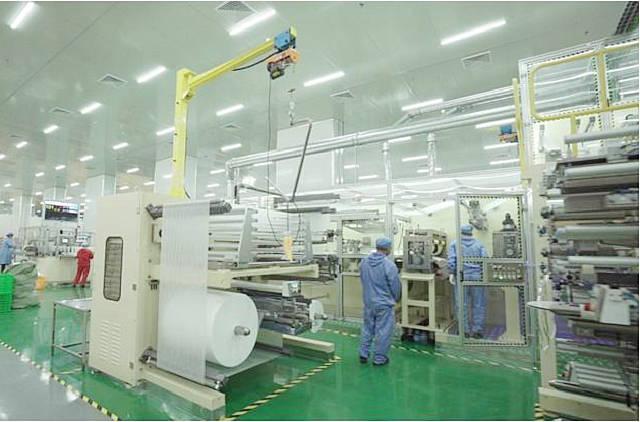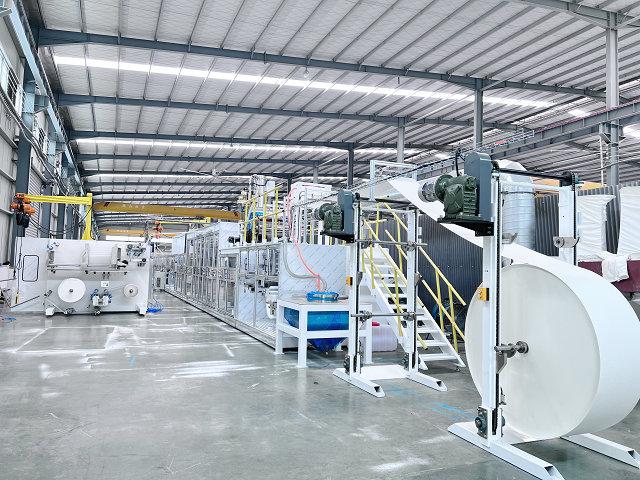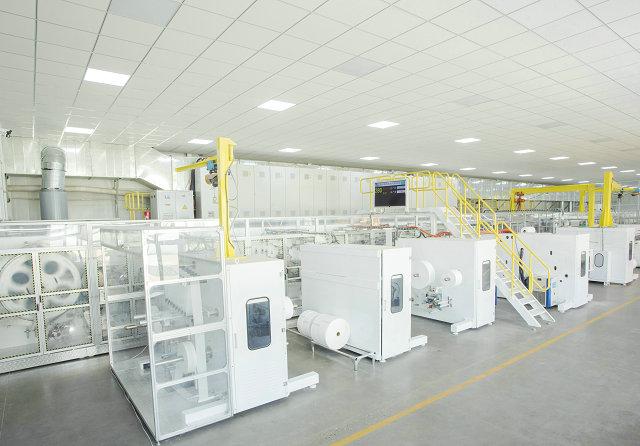Author:Haina Machinery Factory FROM:Diaper Machinery Manufacturer TIME:2024-11-19
Operating a sanitary pad machine involves various labor requirements that ensure efficient production and adherence to quality standards. As the demand for sanitary products continues to rise globally, understanding the workforce needed to manage these machines is crucial for manufacturers. This article will explore the different roles required for operating a sanitary pad machine, the necessary skills and training, safety considerations, and the overall impact of this labor force on production efficiency.
The operation of a sanitary pad machine requires several key roles, each contributing to the overall efficiency of production. These roles typically include machine operators, quality control inspectors, maintenance technicians, and production supervisors. Each position plays a vital part in ensuring that the sanitary pads are manufactured correctly and meet safety standards.
Machine operators are at the forefront of the manufacturing process. They are responsible for the daily operation of the sanitary pad machines. This includes setting up the machines, monitoring production, and ensuring that everything runs smoothly. Operators must be trained to understand the specific machinery they work with, which often includes various automated and semi-automated systems. Familiarity with the technical aspects of the machine, such as adjusting settings and troubleshooting minor issues, is essential for maintaining productivity.
Quality control inspectors play a critical role in maintaining product standards. Their responsibilities include inspecting the finished pads for defects, ensuring that size and absorbency meet specified standards, and verifying compliance with health and safety regulations. These inspectors must have a keen eye for detail and a solid understanding of quality assurance processes. Regular training on new quality standards and testing methods is also essential to keep pace with industry developments.
Maintenance technicians are responsible for the upkeep of the machines, ensuring they operate at peak efficiency. They perform routine checks, repairs, and preventative maintenance to minimize downtime. A strong background in mechanical or electrical engineering is often required for this role, along with troubleshooting skills. Regular training on new technologies and machinery upgrades is also important to ensure that maintenance staff can effectively handle any challenges that arise.

Production supervisors oversee the entire production process, coordinating between machine operators, quality control inspectors, and maintenance technicians. They are responsible for scheduling shifts, managing inventory, and ensuring that production goals are met while adhering to safety protocols. Strong leadership and communication skills are essential for this role, as supervisors must motivate their team and address any issues that may affect production.

The personnel involved in operating a sanitary pad machine must possess specific skills and undergo training to perform their duties effectively. Technical skills are paramount, particularly for machine operators and maintenance technicians, who need to understand the machinery's mechanics. Additionally, familiarity with safety protocols is critical for all employees to prevent workplace accidents.
Training programs are often implemented by manufacturers to help workers develop the necessary skills. These programs may include on-the-job training, workshops, and certifications related to quality control and machine operation. Continuous education is also encouraged, enabling employees to stay updated with the latest production technologies and methodologies.
Safety is a top priority in the operation of sanitary pad machines. Workers are exposed to various hazards, including moving machinery parts, electrical components, and ergonomic risks. Therefore, it is essential to implement comprehensive safety training programs that educate employees about potential hazards and proper operational procedures.
Employers should provide personal protective equipment (PPE) such as gloves, goggles, and ear protection to safeguard workers. Regular safety audits and drills can help reinforce a culture of safety within the workplace, ensuring that all employees adhere to established protocols.
The effectiveness of the labor force directly impacts production efficiency. Well-trained and skilled workers can significantly reduce downtime, enhance product quality, and improve overall output. On the other hand, insufficient training or high turnover rates can lead to operational inefficiencies and increased costs.
Investing in employee development is crucial for manufacturers aiming to optimize production. By fostering a skilled workforce, companies can adapt to changing market demands and maintain a competitive edge in the sanitary products industry.

In summary, the labor requirements for operating a sanitary pad machine encompass a diverse range of roles, each with its own set of skills and training needs. From machine operators to quality control inspectors and maintenance technicians, every position is vital for ensuring efficient production and maintaining product quality. As the demand for sanitary pads continues to grow, investing in workforce training and development will be essential for manufacturers seeking to thrive in this competitive market. Prioritizing safety and efficiency will not only protect workers but also enhance production outcomes and foster a sustainable business model.
